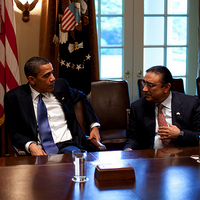On Jan. 27, Raymond Davis killed two armed Pakistanis in a crowded part of Lahore, firing his Glock pistol nine times through the windshield of his car at the two motorcycle-borne men and landing every shot. He then exited his car to photograph and film the men, who he alleged were trying to rob him. According to autopsy findings, one was still alive when Davis photographed them. A third Pakistani was killed when he was hit by a vehicle responding to Davis' subsequent call for backup. Both Davis and the backup car fled the scene. The police successfully intercepted Davis and arrested him, while the other vehicle escaped.
The incident has provoked widespread outrage in Pakistan that spans the political, religious and social spectrum. The episode confirms every suspicion of those who already held a negative view of the U.S., but the anger is also widely shared by those who are normally predisposed to defend the U.S. Washington's official reaction was to call for Davis' immediate release based on diplomatic immunity, a claim Pakistan has referred to the courts. Washington's notable failure to immediately and fully acknowledge the loss of life raised Pakistani passions, and subsequent threats to cut aid and curtail bilateral dialogue strengthened the perception of U.S. high-handedness.
The shooting disrupted an already charged domestic environment. Pakistan is in acute economic turmoil, and headlines in the days before the incident were heavily focused on government corruption. Aware of its unpopularity, the Pakistani government responded cautiously to the shooting and, with a mind to its domestic audience, has resisted U.S. demands. These moves, however, have failed to quell dissatisfaction with the government, and anti-American sentiment has surged to unprecedented levels. The subsequent confirmation of Davis' ties to the CIA has only validated public opinion and settled the question of diplomatic immunity in the minds of Pakistanis, even though the courts have yet to rule on the matter.

